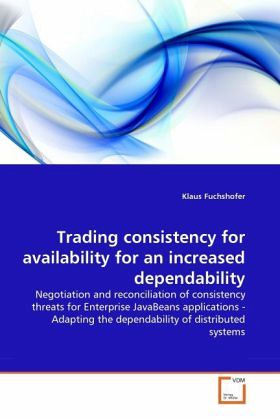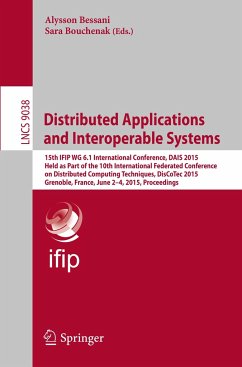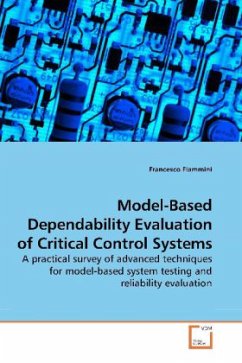
Trading consistency for availability for an increased dependability
Negotiation and reconciliation of consistency threats for Enterprise JavaBeans applications - Adapting the dependability of distributed systems
Versandkostenfrei!
Versandfertig in 6-10 Tagen
32,99 €
inkl. MwSt.

PAYBACK Punkte
16 °P sammeln!
A requirement to distributed systems is their dependability. Applications expect high availability AND data integrity. Availability is achieved by distributing services and the data on several nodes. Each additional copy increases the effort to guarantee consistency in case of a network failure. When some nodes are unavailable, conventional systems therefore decide to block in order to ensure data consistency. From the applications' point of view, the system is unavailable during a degraded state. DeDiSys (www.dedisys.org) introduces a middleware that achieves increased dependability by tradin...
A requirement to distributed systems is their dependability. Applications expect high availability AND data integrity. Availability is achieved by distributing services and the data on several nodes. Each additional copy increases the effort to guarantee consistency in case of a network failure. When some nodes are unavailable, conventional systems therefore decide to block in order to ensure data consistency. From the applications' point of view, the system is unavailable during a degraded state. DeDiSys (www.dedisys.org) introduces a middleware that achieves increased dependability by trading consistency for availability. This means that certain possible inconsistencies are accepted in a degraded system state and remove them after the failure has been eliminated. From the application's point of view, the system is therefore available during a degraded state. This book describes the part of the middleware that enables applications to accept possible inconsistencies (threats) during a degraded system state, that collects all necessary information and that further on supports the application to the re-establish a consistent state when all nodes of the network are available again.












